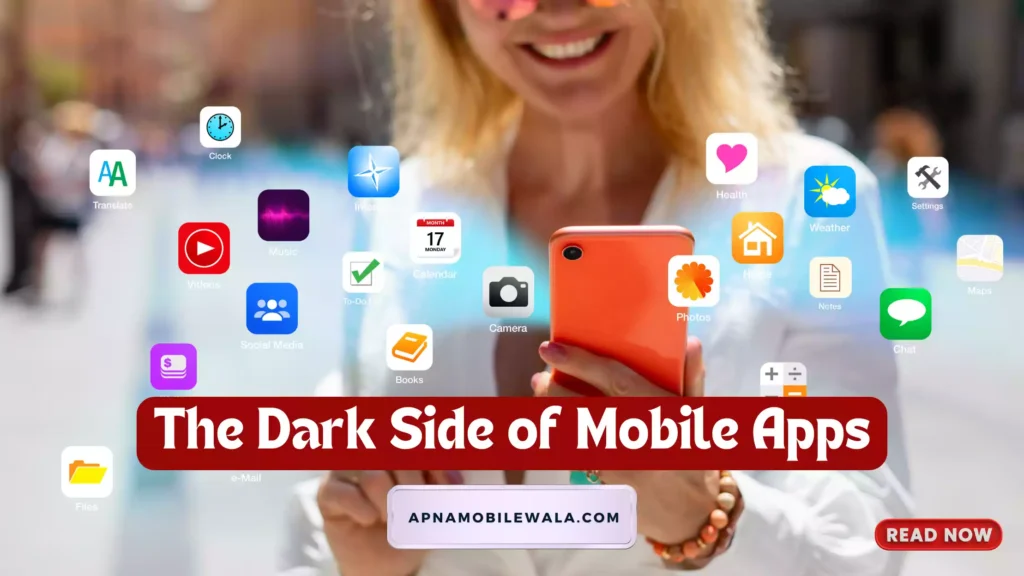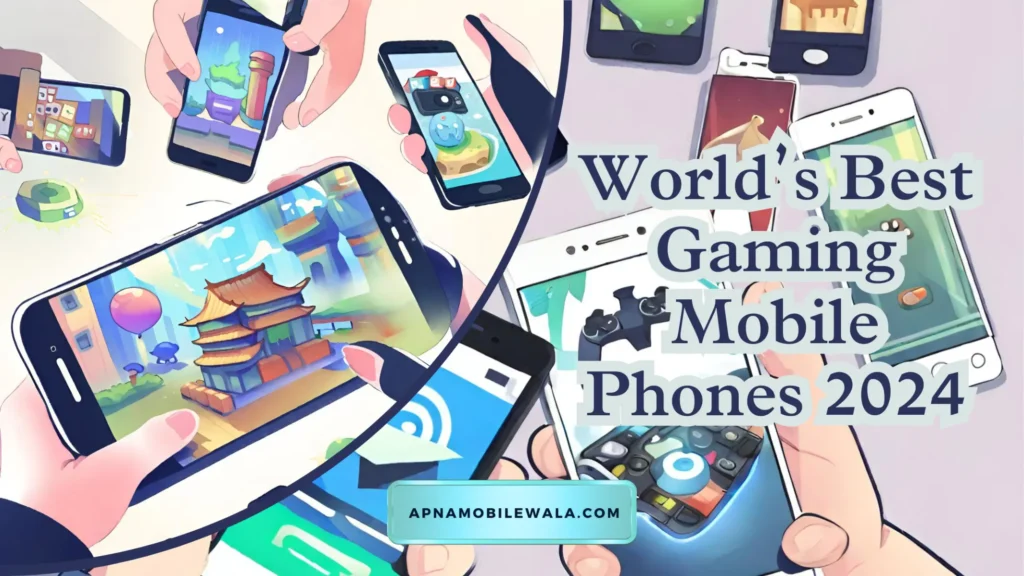The Dark Side of the App: Beyond Convenience Lies Hidden Costs
Smartphones have become an extension of ourselves. Apps, those little icons promising entertainment, connection, and productivity, fill our home screens. But beneath the veneer of convenience lurks a dark side that can be addictive, manipulative, and a threat to our privacy and well-being.
The Allure of Endless Scrolling
Social media apps and games are designed to be habit-forming. Endless scrolling feeds, dopamine-triggering notifications, and the allure of “just one more level” keep us glued to our screens for hours. This digital addiction can steal our time, disrupt sleep patterns, and negatively impact mental health.
Data Drain: The Price of Free
Many popular apps are “free to use,” but the true cost is often our personal data. Location tracking, browsing history, and even our in-app purchases are collected and used for targeted advertising or even sold to third parties. This raises concerns about privacy and the potential misuse of our data.
The Algorithmic Filter Bubble
Social media apps curate our feeds based on algorithms that track our preferences. This creates echo chambers, where we’re only exposed to information that reinforces our existing beliefs. This can lead to polarization, a distorted view of reality, and a decline in critical thinking.
The Cult of Perfection: Curated Lives and Anxiety
Social media platforms are rife with unrealistic portrayals of perfect lives, filtered photos, and carefully crafted experiences. This constant exposure can breed comparisonitis, anxiety, and a feeling of inadequacy in our own lives.
The Erosion of Attention Spans
The rapid-fire nature of apps, with constant notifications and information overload, can lead to a shrinking attention span. We struggle to focus on complex tasks, and our ability for deep thinking and critical analysis can be diminished.
Taking Back Control: A Digital Detox
It’s time to be mindful of how we use apps. Here are some tips to navigate the dark side:
- Track Your App Usage: Monitor how much time you spend on different apps. Consider setting time limits or disabling notifications altogether.
- Embrace App Detox: Schedule breaks or even entire days away from your phone to reconnect with the real world.
- Be Selective: Don’t be afraid to delete apps that no longer serve you or negatively impact your well-being.
- Think Before You Share: Be mindful of what information you share on social media apps.
- Prioritize Privacy: Review app permissions and adjust them to limit data collection.
Technology can be a powerful tool, but it’s crucial to be aware of its potential pitfalls. By being mindful of the dark side of mobile apps, we can reclaim control of our time, attention, and well-being, and ensure technology serves us, not the other way around.
The Trifecta of Trouble: Data Collection, Manipulation, and Security Risks in Mobile Apps
Our smartphones are gateways to a vast app universe, promising convenience, entertainment, and connection. However, beneath the surface lies a concerning trifecta: data collection, manipulation, and security risks. Let’s delve into how mobile apps can exploit our trust and what we can do to protect ourselves.
Data Collection: You Are the Product, Not the Customer
Many free apps operate on a deceptive “freemium” model. While the app might be free to download and use, the real cost is your data. These apps employ sophisticated methods to collect a comprehensive profile on you, including:
- Location Tracking: Knowing where you go reveals your habits, routines, and interests – a goldmine for targeted advertising.
- Browsing History: Tracking your online activity paints a picture of your preferences, making you susceptible to personalized marketing tactics.
- App Usage Patterns: How long you spend on an app, what features you use, and how you interact with it all provide valuable insights into your behavior.
- In-App Purchases: Every purchase reveals your spending habits and preferences, allowing companies to tailor future offerings.
This collected data is then analyzed, sold, or used to create highly targeted advertising and influence your behavior. Imagine seeing ads for that new gadget you just browsed online, or political messaging designed to sway your opinion based on your social media activity. It’s a constant reminder that you’re not just a user; you’re a product being sold to advertisers.
Manipulation by Design: The Algorithmic Trap
Social media apps and games are masters of psychological manipulation. They employ techniques like:
- Endless Scrolling Feeds: The constant stream of content keeps you engaged, scrolling for hours without realizing the time lost.
- Notification Triggers: The strategically timed pings and alerts create a sense of urgency and keep you checking the app for fear of missing out.
- “Just One More Level” Syndrome: Games exploit reward systems that trigger dopamine release in your brain, keeping you hooked and chasing the next achievement.
These tactics lead to digital addiction. Sleep patterns suffer, productivity declines, and mental health can be negatively impacted as you struggle to break free from the app’s manipulative pull. Furthermore, algorithms personalize your experience, creating echo chambers where you’re only exposed to information that confirms your existing beliefs. This fosters polarization, hinders critical thinking, and distorts your perception of reality.
Security Threats: A Chink in the Armor
Mobile apps can also be gateways to security breaches. Here’s how:
- Malicious Apps: Disguised as legitimate apps, these can steal your login credentials, credit card details, or other sensitive information.
- Unsecured Connections: Using public Wi-Fi without a VPN exposes your data to potential interception by hackers.
- Outdated Apps: Apps with known vulnerabilities or those that haven’t been updated in a long time can be exploited by malware.
- Data Breaches: Even reputable app companies can experience data breaches, jeopardizing your personal information.
The consequences of these security risks can be severe, ranging from identity theft and financial loss to compromised devices and stolen data.
Taking Back Control: Be a Mindful Mobile User
We don’t have to be passive victims in the app economy. Here are some ways to be a more informed and secure mobile user:
- Scrutinize Permissions: Don’t blindly grant all permissions requested by an app. Understand what data is necessary for it to function and limit access where possible.
- Read Reviews and Research Developers: Before downloading, check user reviews and research the app developer’s reputation to identify potential red flags.
- Manage Privacy Settings: Many apps offer privacy settings that allow you to control data collection. Take the time to adjust them to your comfort level.
- Practice App Hygiene: Regularly review your downloaded apps. Delete unused ones and keep the remaining ones updated for optimal security.
- Consider Paid Alternatives: Sometimes, opting for paid apps with clearer privacy practices can be a worthwhile investment for peace of mind.
By understanding the data collection, manipulation, and security risks associated with mobile apps, you can navigate the digital world with more awareness. Remember, you are in control of your smartphone and your data. Be a conscious user and prioritize your privacy and security in the age of apps.
Mobile App Security Threats:
Mobile app security threats can be a complex issue, but here’s a breakdown of the major categories to watch out for:
1. Malicious Apps:
- Masquerading as Legitimate Apps: These apps disguise themselves as popular games, utilities, or social media apps to trick users into downloading them. Once installed, they can steal login credentials, credit card information, or other sensitive data.
- Data Stealing: Malicious apps can be designed to harvest your personal information like contacts, browsing history, or even location data, which can then be sold or used for other nefarious purposes.
2. Unsecured Connections:
- Public Wi-Fi: Using public Wi-Fi networks without a VPN (Virtual Private Network) exposes your data to potential interception. Hackers can lurk on these networks and steal information transmitted between your phone and the app, especially if the app doesn’t encrypt data traffic.
- Man-in-the-Middle Attacks: These occur when a hacker intercepts communication between your device and an app’s server. Without a secure connection, the hacker can steal your data or even inject malware into the app.
3. Outdated Apps:
- Security Vulnerabilities: Developers constantly patch security vulnerabilities in their apps. Using outdated apps with known vulnerabilities is like leaving your doors unlocked – hackers can easily exploit these weaknesses to gain access to your device or data.
4. Data Breaches:
- App Company Breaches: Even reputable app companies can experience data breaches. If an app stores your personal information, a breach could expose it to hackers, putting your privacy at risk.
- Third-Party Breaches: Apps often rely on third-party services. If one of these services experiences a security breach, your data could be compromised as well.
5. Social Engineering:
- Phishing Attacks: Deceptive emails, SMS messages, or even fake app updates can trick you into revealing sensitive information or downloading malicious software. Be cautious of any unsolicited communication and never share your login credentials with anyone.
Protecting Yourself from Mobile App Security Threats:
- Download from Trusted Sources: Stick to official app stores like Google Play Store or Apple App Store to minimize the risk of downloading malicious apps.
- Read Reviews and Research Developers: Before downloading, check user reviews and research the app developer’s reputation to avoid suspicious apps.
- Scrutinize Permissions: Pay attention to the permissions requested by an app. If an app asks for access to features that don’t seem necessary for its function, be wary.
- Keep Apps Updated: Enable automatic updates for your apps to ensure you have the latest security patches.
- Use a VPN on Public Wi-Fi: Whenever using public Wi-Fi, consider using a VPN to encrypt your data traffic and protect yourself from man-in-the-middle attacks.
- Be Wary of Social Engineering: Don’t click on suspicious links or attachments, and never share your login credentials with anyone.
- Use Strong Passwords and Enable Two-Factor Authentication: Use complex passwords for your app accounts and enable two-factor authentication for an extra layer of security.
By being aware of these mobile app security threats and taking preventive measures, you can significantly reduce the risk of data breaches, malware infections, and other security issues. Remember, vigilance is key!
Apps With Security Issues:
It’s important to understand that identifying specific apps with security vulnerabilities can be challenging. Here’s why:
- Vulnerability Disclosure: App developers often address security issues through private patching before publicly announcing them to avoid a wider attack window.
- Constantly Evolving Threats: New vulnerabilities are discovered all the time, so an app considered “safe” today might have a newly discovered flaw tomorrow.
However, there are ways to stay informed and make informed decisions about the apps you use:
- Reliable Tech News Sources: Reputable tech news websites often report on major app security breaches or vulnerabilities. Stay updated on these news sources to be aware of widespread issues.
- Security Researcher Reports: Security researchers frequently uncover vulnerabilities in apps. While they may not disclose the specific app publicly to avoid exploitation, their reports can raise awareness of potential risks.
- App Store Reviews: While not always foolproof, reading user reviews on app stores can sometimes reveal concerns about security issues. Look for reviews mentioning suspicious behavior, data leaks, or unusual permission requests.
Here are some general tips for choosing apps with a lower security risk:
- Stick to Official App Stores: While there may be a wider selection of apps outside official stores, these often lack proper vetting processes, increasing the risk of malware.
- Look for Reputable Developers: Choose apps developed by well-known and established companies with a history of prioritizing security.
- Read App Permissions Carefully: Don’t blindly grant all permissions requested by an app. Understand what data is necessary for the app to function and limit access where possible.
- Keep Apps Updated: App developers regularly release updates that address security vulnerabilities. Enable automatic updates for your apps to ensure you have the latest security patches.
By following these tips and staying informed, you can make informed choices about the apps you download and use, minimizing the risk of encountering security issues.
Thanks for Reading!
- How Will We Access Virtual Worlds on Our Phones?
- The Rise of the Subscription Phone
- Sony Xperia 1 VI Price and Review
- Realme 12 Pro Plus Review and Price
- OnePlus Nord CE4 Review and Price



